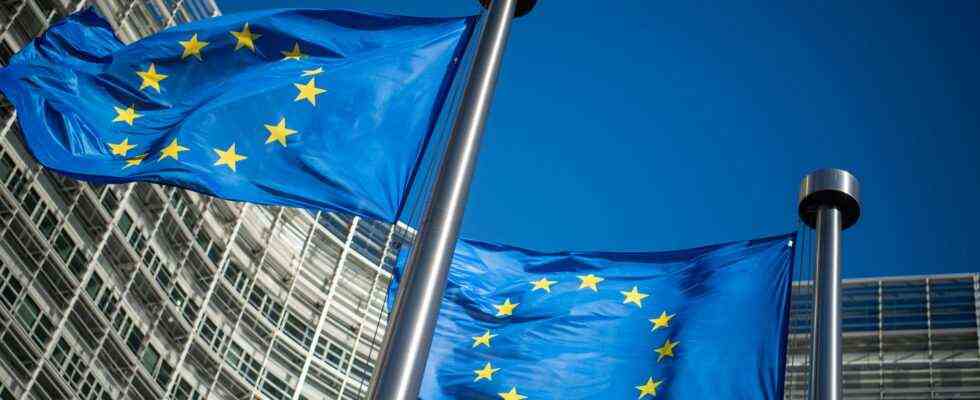Status: 11.11.2021 1:23 p.m.
The upswing in Germany threatens to be stalled at the end of the year. But for the European Union as a whole, the EU Commission expects stronger economic growth than previously thought.
The economy in the European Union and in the euro countries is recovering faster than expected from the corona pandemic. The EU Commission raised its current growth forecast for the euro zone for this year to 5.0 percent. The Commission had previously expected the economic output of the countries with the common currency to increase by 4.8 percent.
The Commission is also anticipating growth of 5.0 percent for the entire EU this year. In the third quarter of 2021, the EU economy returned to its pre-pandemic output and “went from recovery to growth,” it said.
In its autumn forecast, the EU Commission expects a growth rate of 4.3 percent in the euro zone for the coming year. That is a slight decrease of 0.2 points.
Germany’s industry prone to material shortages
The economic outlook for the EU is thus well above the expected figures for the Federal Republic of Germany. Economic growth of just 2.7 percent is expected in this country for 2021, and gross domestic product (GDP) will increase by 4.6 percent in 2022.
The weaker growth in Germany is related to the fact that the economic downturn of minus five percent last year was not as severe as in other important EU economies. The percentage increase is correspondingly lower. In France, for example, the gross domestic product shrank by more than eight percent in 2020, in Spain, the fourth largest economy in the EU, the minus was eleven percent.
In addition, the industrial sector plays a bigger role in Germany. This is why supply chain problems and material shortages have a stronger and more inhibiting effect on growth than in other countries.
Inflationary pressures remain high
The inflation outlook is less positive. The high pressure caused by the sharp rise in inflation in the euro zone will only ease slightly in the coming year, according to the forecast of the EU Commission.
The Brussels authority is now predicting a price increase rate of 2.4 percent for 2021. This would be above the target of the European Central Bank, which is aiming for 2.0 percent as ideal for the economy. According to the EU Commission, the inflation rate is likely to be above this value in 2022, even if it is likely to be a little weaker at 2.2 percent.
Brussels does not expect the all-clear until 2023: Then the price pressure will only increase moderately by 1.4 percent. For Germany, the Brussels authority expects that in 2021 a sharply increased inflation rate of 3.1 percent will be reached, which will decrease to 2.2 percent next year and then to 1.7 percent in 2023.
Inflation in the euro area rose more sharply in October than it had been in over 13 years. Driven by a sharp rise in energy costs, consumer prices rose by 4.1 percent within a year.

